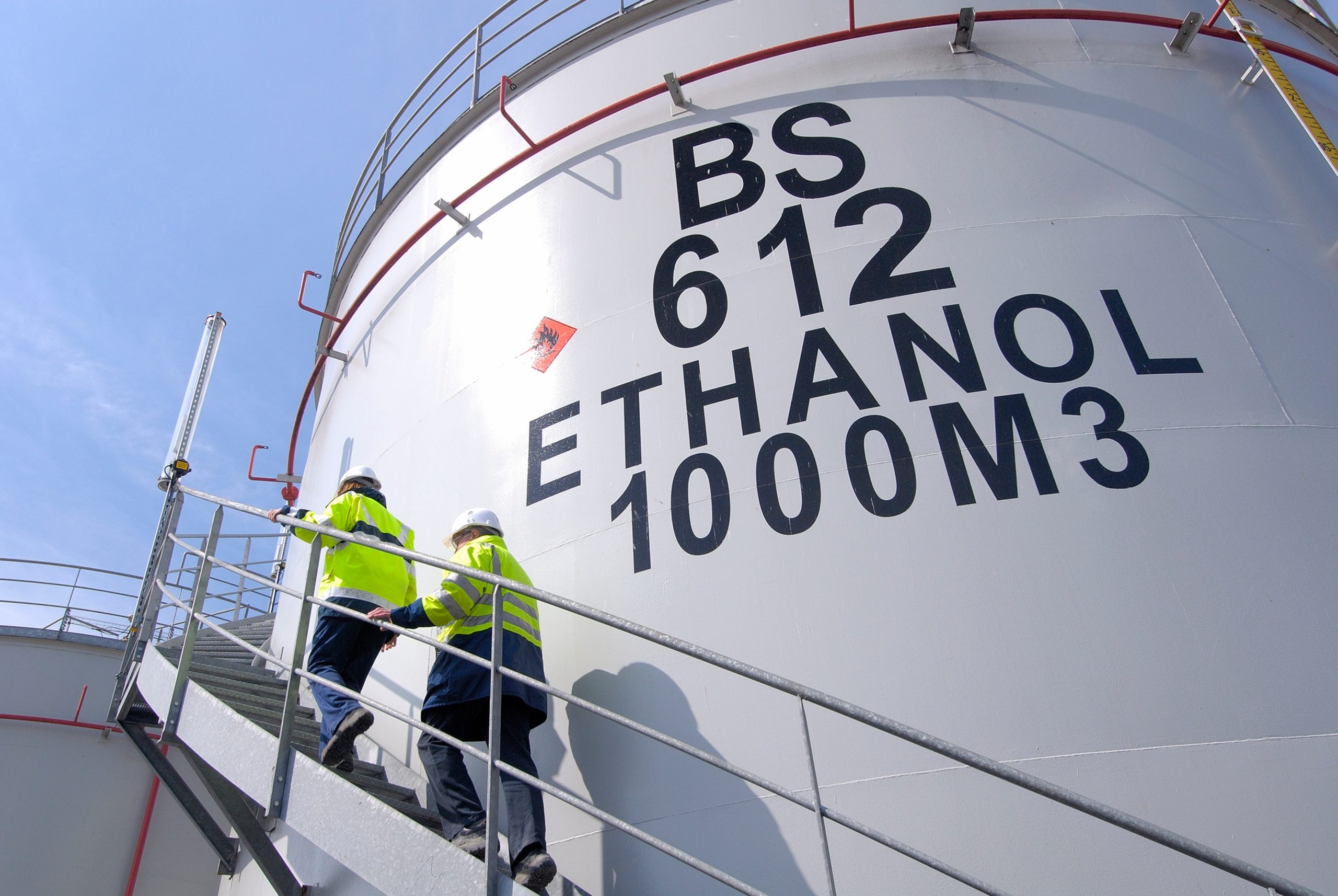
Liquid terminals to fuel energy transition with government programs
As the U.S. transitions toward adopting more renewable liquid fuels, bulk liquid storage facilities serve as an ever-present constant in the supply chain, storing and handling commodities like petroleum-based products, biofuels like ethanol and beyond.
The public and market forces continue to push the industry to adapt to new and increasing quantities of greener, alternative forms of liquid energy. The federal government has developed several programs that terminal companies can leverage to jumpstart their efforts, capitalizing on these emerging markets.
Higher Blends Infrastructure Incentive Program
For example, in June 2023, the U.S. Department of Agriculture (USDA) announced the Higher Blends Infrastructure Incentive Program (HBIIP), designed to significantly increase the sale and use of higher blends of ethanol and biodiesel by expanding infrastructure for renewable fuels through quarterly grant competitions. The International Liquid Terminals Association (ILTA) held a webinar with Jeff Carpenter, HBIIP’s program manager, to discuss the initiative and how terminal companies can take advantage of the resources it offers.
Carpenter gave a high-level summary of the HBIIP program, outlining how it implements quarterly grant competitions for $90 million in projects to support higher blend fuel sales, including purchasing and installing or retrofitting fuel dispensers and related equipment and infrastructure. His presentation highlighted opportunities under HBIIP for fuel distribution facilities, and while installation of storage tanks for ethanol and biodiesel are common grant uses, the program is open-ended for terminal facilities if the project is tied to higher blends of biofuels. Carpenter also explained additional funding opportunities from the USDA for emissions reductions at liquid terminals, including the Rural Energy for America Program (REAP) and business and industry guaranteed loans. Although the last quarterly competition under HBIIP is open through September 30, 2024, Carpenter anticipates that the program will likely be renewed in the future because of its success and bipartisan support.
FAST-SAF programs
Likewise, in late 2022 the DOT and the Federal Aviation Administration established the Fueling Aviation Sustainable Transition (FAST) grant program. Created under the Inflation Reduction Act, the program offers funding to accelerate the production and use of sustainable aviation fuels (SAF) and the development of low-emission aviation technologies to support the U.S. aviation climate goal to achieve net-zero GHG emissions by 2050. For bulk liquid terminals, FAST offers almost $250 million in grants to support the build out of infrastructure projects related to SAF production, transportation, blending and storage.
Regional Clean Hydrogen Hubs program
Finally, the DOE formalized the Regional Clean Hydrogen Hubs (H2Hubs) in 2023, earmarking $7 billion in funding for seven clean hydrogen hubs across the U.S. These hubs work as a national network of clean hydrogen producers, consumers and connective infrastructure while supporting the production, storage, delivery and end use of clean hydrogen. H2Hubs is meant to accelerate the commercial-scale deployment of hydrogen, helping generate clean, dispatchable power, create a new form of energy storage and decarbonize heavy industry and transportation. Terminal companies can apply for funding to build hydrogen storage capabilities at their facilities if they are located within the seven hubs. The hydrogen hubs are named: Appalachian, California, Gulf Coast, Heartland, Mid-Atlantic, Midwest and Pacific Northwest.
As the bulk liquid terminals industry continues to navigate the wider energy transition, terminal companies will undoubtedly play a key role in the energy logistics supply chain far into the future. HBIIP, FAST-SAF and H2Hubs represent a unique opportunity for companies to hit the ground running as the nation moves to embrace more renewable liquid energies.
By ILTA , JAY CRUZ / September 16, 2024
